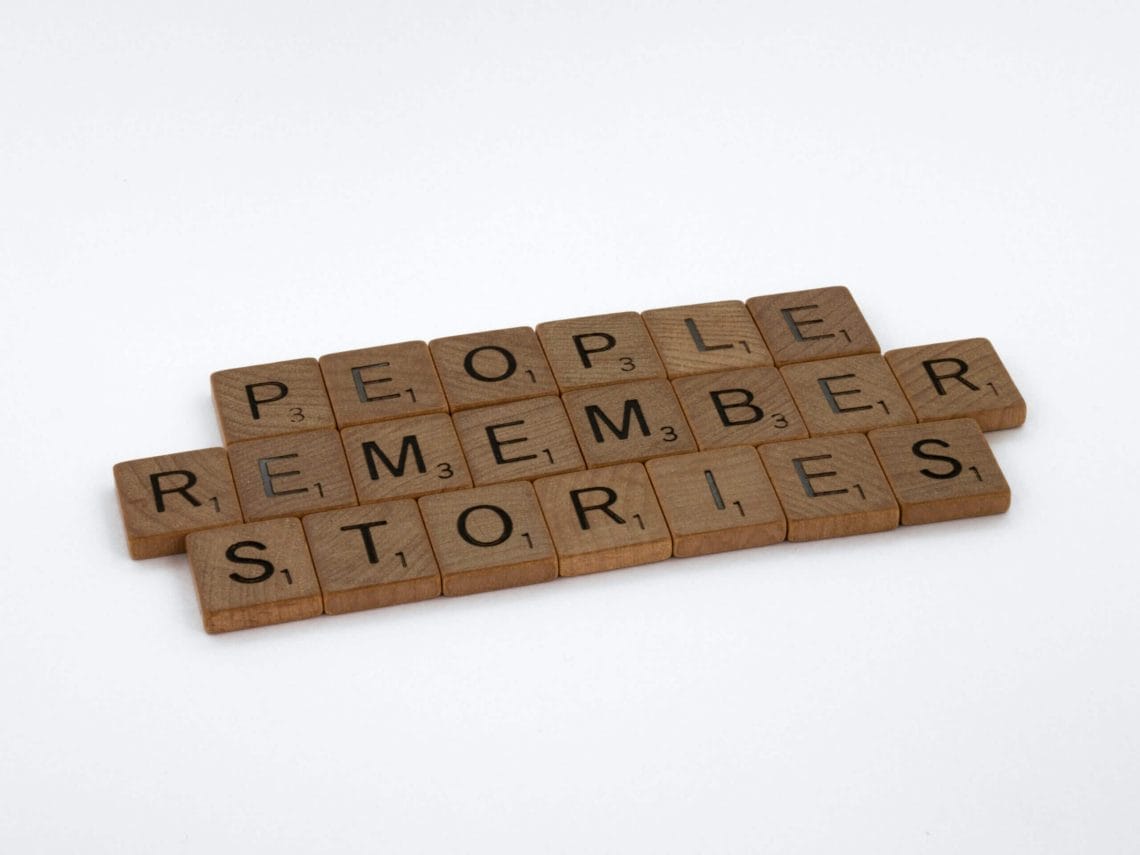
People are hardwired for tales. We expect in tales, keep in mind in tales, and set up our experiences in tales. Our mind makes use of collections of tales, or narratives, to make sense of the onslaught of data we obtain on daily basis. Narratives form our shared sense of historical past, tradition, values, and identities with others. In addition they affect individuals’s beliefs and attitudes, having a profound impact on society.
In the US, there are deep-seated narratives about who deserves what, and why. One of the pervasive (and false) narratives in American society is that individuals experiencing poverty have solely themselves responsible—that their circumstances are the results of particular person decisions, reasonably than flawed social insurance policies and packages that reinforce inequality. These narratives form the political financial system, and consequently, inform misguided insurance policies that exacerbate poverty in the US reasonably than alleviate it.
Narratives maintain transformative energy and can be utilized to shift the political financial system. As Chimamanda Ngozie Adichie shares in her TED Discuss “The Hazard of a Single Story,” “Tales have been used to dispossess and to malign. However tales may also be used to empower, and to humanize. Tales can break the dignity of a individuals. However tales may also restore that damaged dignity.”
Narratives transfer individuals, individuals transfer coverage, and coverage can transfer us in direction of a society that’s extra simply, extra inclusive, and displays the realities of the people residing in it.
Our Narrative Change groups put our experience in behavioral science and analysis to work supporting and amplifying the numerous items of narrative change work occurring on the bottom in cities throughout the US. In partnership with organizations and neighborhood residents, we create campaigns that expose the systemic causes of poverty, and advance community-driven coverage options that tackle the true drivers of poverty, all whereas constructing a physique of analysis on who holds these narratives, why, and potential options to alter them.
Our Analysis: How pervasive are false narratives about poverty? What drives them? And who holds them?
Since 2020, ideas42 has labored alongside nonprofits, teachers, service suppliers, and neighborhood members throughout the U.S. to know and substitute dangerous narratives with up to date, correct variations knowledgeable by native contexts and behavioral science analysis.
Over two years, we carried out nationwide surveys with a consultant pattern of 4,309 respondents. We discovered 4 main classes of dangerous narratives:
These narratives permeate all features of American society, reducing throughout social identities like race, gender, age, and political ideology. Our analysis confirmed that in the case of endorsing dangerous narratives, what issues way over demographics are individuals’s worldviews and pondering kinds. We outline worldview as a set of beliefs and attitudes via which an individual interprets the world round them, whereas pondering kinds are a characterization of how an individual processes data and solves issues.
One worldview and one pondering type particularly matter rather a lot in the case of poverty narratives: social dominance orientation, or how a lot an individual favors inequality amongst social teams, and intuitive pondering, or how a lot an individual depends on intuition and emotions when making choices. Individuals who rating extremely on intuitive pondering or social dominance orientation—no matter socioeconomic standing—usually tend to endorse dangerous narratives about poverty.
We additionally discovered that respondents tended to converge into teams in response to their pondering kinds and which narratives they had been most certainly to agree with. By means of a kind of viewers segmentation course of referred to as cluster evaluation, we uncovered 4 forms of audiences:
-
Curious Change Brokers: Most certainly to endorse the structural narrative about poverty, or the concept poverty is a results of systemic racism and inequality. This group shows excessive mental curiosity, or willingness and curiosity in participating novel ideas and opposing opinions.
-
Unengaged Observers: Lowest endorsers of all of the narratives, dangerous and structural alike. They show low mental curiosity.
-
Paternalistic Fatalists: More likely to endorse fatalism, paternalism, and structural narratives. They’ve the best ranges of mental curiosity.
-
Suspicious Meritocrats: Increased endorsement of dangerous narratives in comparison with the structural narrative, significantly of welfare and meritocracy. They show average mental curiosity.
We additionally analyzed dominant narratives in particular coverage concepts, equivalent to assured fundamental revenue (common, unconditional cash within the type of fungible money). A rising physique of analysis (together with our personal work on money switch packages throughout sub-Saharan Africa) has documented how assured revenue packages constantly enhance well being, youngster welfare, and employment outcomes, and supply essential stability in durations of economic uncertainty. But narrative obstacles, and their influence on the political financial system, stand in the best way of widespread assist. In our evaluation, we discovered that 60% of survey respondents both agreed or strongly agreed {that a} assured revenue can be good for them and their neighborhood. Nonetheless, when prompted to offer open-ended suggestions on assured revenue packages, respondents shared overwhelmingly adverse feedback, inflected with false narratives about fraud, employment, and motivation.
Total, this illustrates an intriguing paradox. Individuals assist a assured revenue for themselves and their communities however oppose the idea of a basic assured revenue program. Stereotypes and misperceptions about these receiving money advantages preserve them from supporting assured fundamental revenue (GBI) coverage.
We really feel it’s pressing to make use of the proof from our analysis on the drivers of false narratives and the collective energy of narrative change practitioners to inform a special story and reimagine how we discuss, take into consideration, and act on poverty.
Co-creating narrative change campaigns utilizing behavioral science and measuring influence
This analysis knowledgeable how we’re searching for to alter narratives, finally main to higher insurance policies. Our Narrative Change groups at ideas42 take a multi-pronged method:
The tales we inform ourselves, or are instructed, form our expertise on this planet, how our society is fashioned, and the way societal issues are solved (or perpetuated). Tales are, at their coronary heart, a perform of human conduct. By means of our first 4 years investigating narratives round poverty in the US, and beginning to sketch out plans to assist change them, it’s grow to be clear that to really finish poverty and inequality, we should use our understanding of human conduct, and of narratives, to first shift the political financial system. The multi-pronged method we’re taking in 2024 and past, displays this understanding. Our bold narrative change work, in partnership with communities, is how we obtain lasting influence at scale.
Study extra about our ongoing narrative change initiatives in cities throughout the U.S. and get in touch with us at [email protected] to become involved. You can even straight assist our work to make simpler public packages attainable by making a contribution to ideas42.
